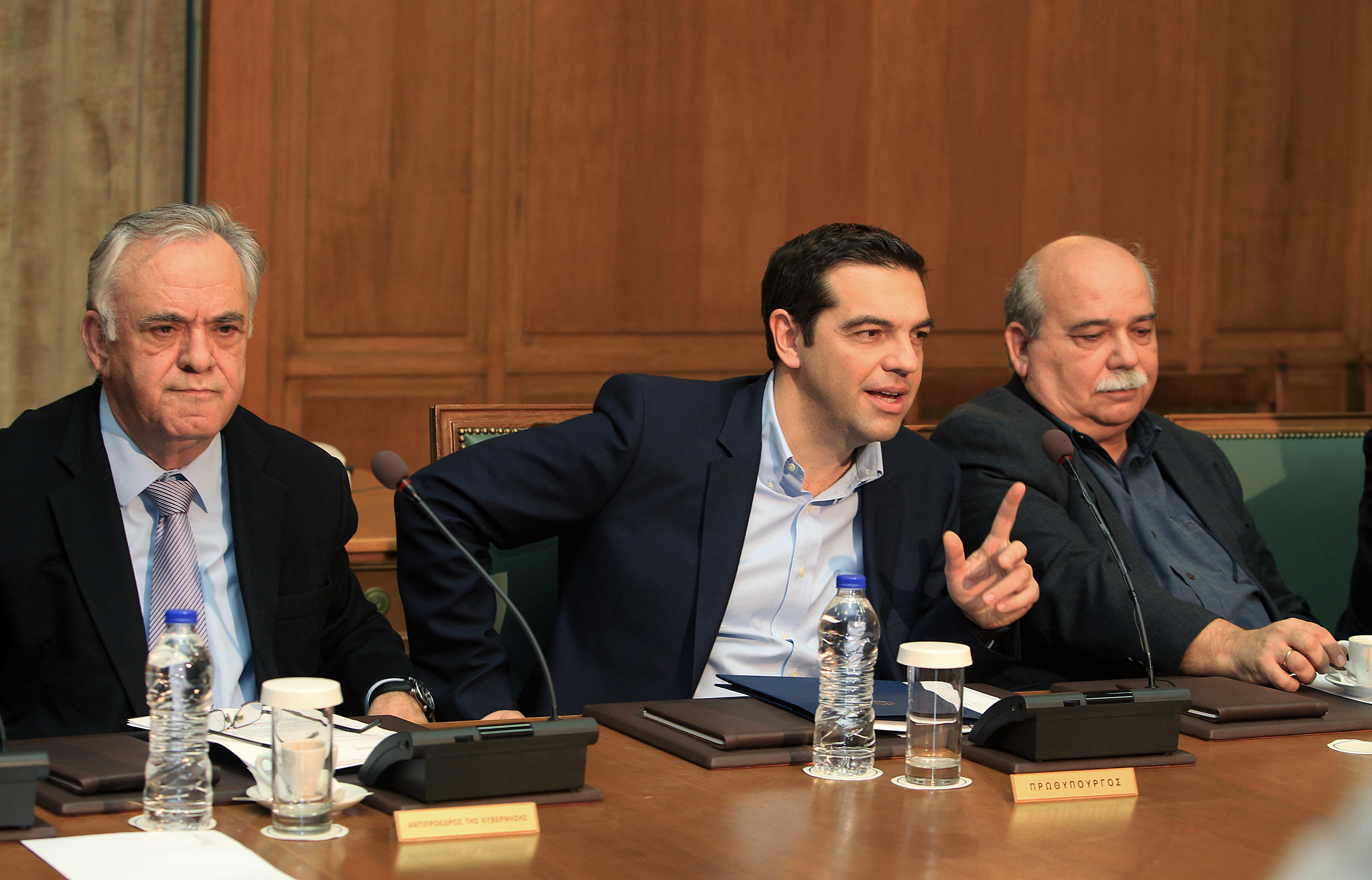Anyone who is in contact with the General Accounting Office and the Bank of Greece is aware that the Greek State’s cash reserves are quickly running out.
Experienced administrative officer have so far done what they could.
They limited expenses, suspended payments where they were able to and where there was patience, they identified the State’s active bank accounts, the accumulated the available funds, they literally scrapped the bottom of the barrel to avoid an accident and a default before we know it.
The cost on the real economy is massive, which is clearly being tested and is in danger of losing what vitality it has left.
Without a doubt, all options, technical or otherwise, so that the country does not default, have nearly been exhausted.
According to those closely monitoring the public finances, the installment for the International Monetary Fund will be paid on Thursday and after that a post-Easter race begins to collect the necessary funds to avert an accident by the 24th of Aprils, at which point the critical Eurogroup will convene to decide whether the “bridge agreement” stands and whether the country can be funded latently until the end of June.
Reportedly, the two-day Euro Working Group which begins today in Brussels will not be decisive, but rather preparatory for the Eurogroup on the 24th of April.
That is because up to now it has not been possible for the technical teams to participate in the negotiations and as such they have not recommendations for the completion of the view, which is the cornerstone of our country’s relationship with our partners.
That was the main reason behind Mr. Varoufakis’ trip to the International Monetary Fund’s headquarters in Washington.
There, Mrs. Lagarde made it clear to the Greek Minister of Finances – who was aiming to exclude the insurance system and employment relations from the review – that without activating the technical teams there can be not review, and as such no agreement to lift the liquidity restrictions on Greece.
It is not coincidence that the technical teams got straight to work in Athens yesterday, evaluating the date and the country’s financial state.
What can be said after a period of suspension and wait was that an agreement was reached to connect the Greek side with the representative of the troika and the International Monetary Fund, which as everyone knows has dominated in the discussions since 2010 and has the first word in the technical negotiations.
In other words valuable has been lost, the Greek economy experienced an exhaustive four months without funding and will remain in a state of uncertainty for some time now, without any assurances as to the outcome of the negotiations.
Truth be told, Greece has reached its limits once again, as it appears to be exhausting its survival options without any help.
From here on, anything goes.
The government has not unfortunately yet fully realized the circumstances and consequences of a potential accident in the economy,
It has been said that over the past few days, many hours were spent at Maximos Mansion to understand the consequences of a possible non-payment of the IMF installment.
Last week, when the Finance Minister was asked from the representatives of international investment firms what he would do if there was no agreement with the partners on the 24th of April, he is said to have almost spontaneously answered, without second thought, that he would implement measures restricting the movement of capital.
That explains the many public statements of government officials over the past few days, about the possibility of a non-payment towards the IMF and those “heroic” and absurd statements about falling out.
It should be noted thought that over the past few days, the Prime Minister at least, has realized the difficulties which the country now faces.
The Prime Minister appears to have understood the dangers and is seeking ways out of the deadlock.
Indicatively, he is personally monitoring financial affairs, recruiting people and seeking out more accurate information, than what was available until now. It if a fact that also reveals a lack of trust towards the Minister of Finances.
However, once again, he is mulling over the political cost of an agreement with the partners and is having a hard time making a direct choice, as he is likely being pressured by the many small “leaders” within his party, who still live in their world, fantasizing how the partners will submit and worst of all they do not understand the consequences of an uncontrolled default.
In any case, the Prime Minister who is in charge of the country does not have many options.
He is obliged to assume the political cost, whatever it may be, tell the Geek people the whole truth and set the foundations for an agreement on the 24th of April.
Without an agreement on the 24th of April the political and financial developments in Greece will be out of control.
That is, unfortunately, the bitter truth.
Everything else is for the party zealots and miserable propagandist who believes – and some continue to believe – that the Greek problem is simple, manageable and purely a matter of correlations and power.
Antonis Karakousis





